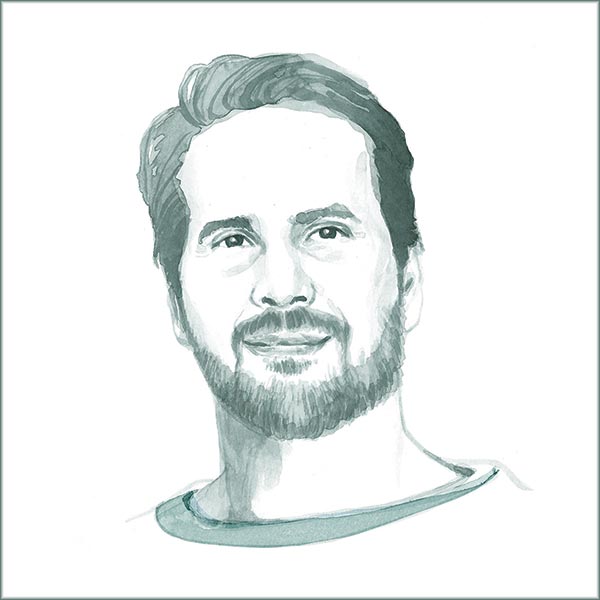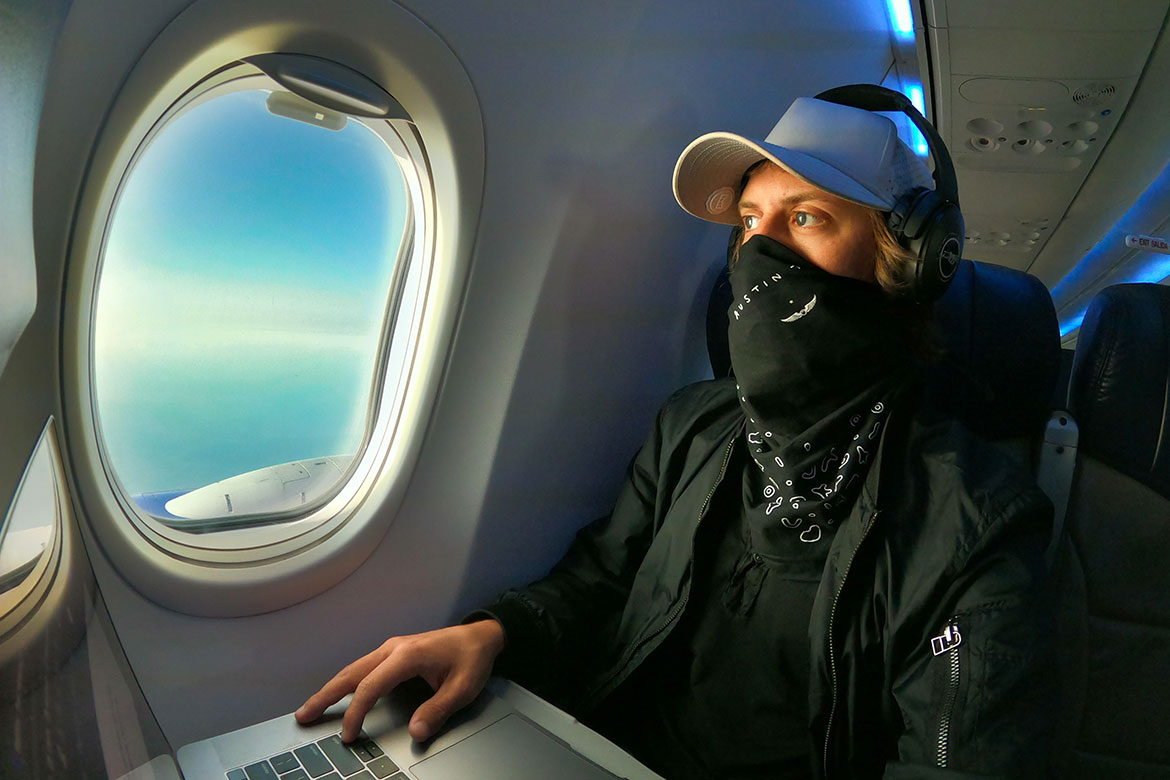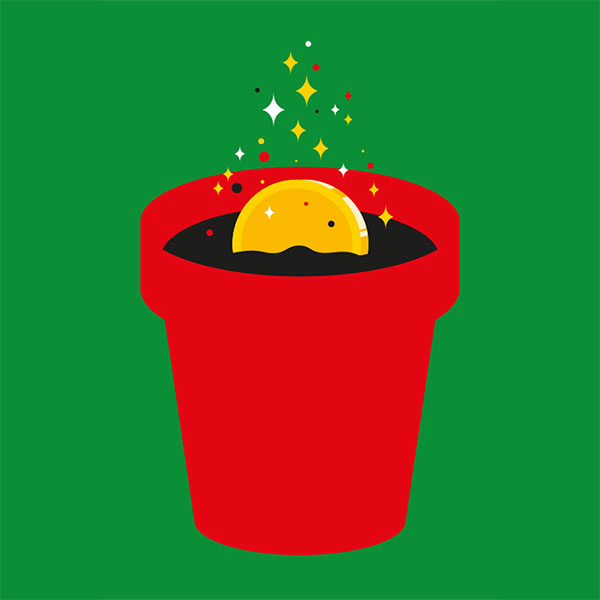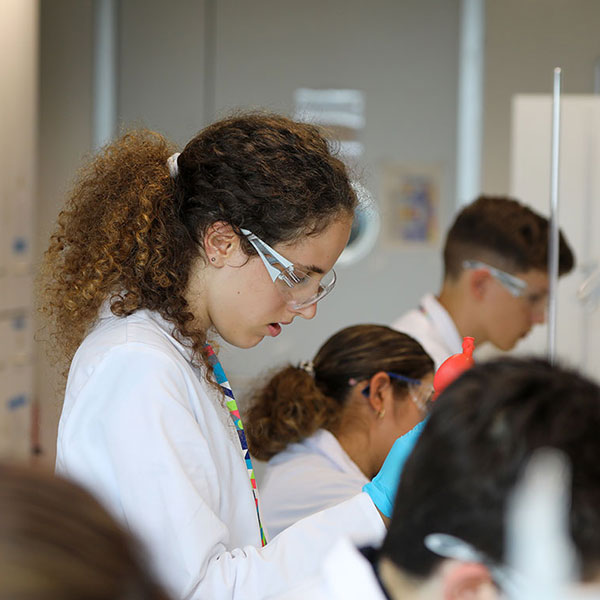RESEARCH EXCHANGE
Young talent in Switzerland
Every year, around 1,000 young postgraduate students from all over the world apply for Excellence Scholarships from the Swiss government. About 200 of them are successful and can continue their studies in Switzerland. Horizons spoke to five recipients about their research and life in Switzerland.

Misato Toda from Japan wants to preserve Nature. She will always remember her time in Switzerland. | Photo: Mpho Mokgadi
“It seems to me that a doctorate is better recognised here, and more helpful to one’s scientific career”
“I want to stop climate change and preserve our beautiful Nature. Worldwide, more than 100 million tonnes of nitrogen are spread across agricultural land every year as fertiliser. But plants cannot absorb even half of it, and much of it seeps into neighbouring areas. This means many soil and water ecosystems are threatened. Future agriculture will therefore benefit from a more efficient means of supplying nitrogen from the soil to the plants. Microbes in the soil can help to achieve this goal. That is why I am researching microbial communities in the earth.
“As a researcher, I enjoy the excellent level of scientific exchange at the Institute. It seems to me that a doctorate is better recognised and more helpful to one’s scientific career in Switzerland than is the case in Japan. In my home country, people have a rather negative attitude towards doctorates. What cultural differences do I perceive between Japan and Switzerland? In short, it’s collectivism versus individualism. In Japan, people place more value on being a good member of the community than on pursuing their own desires. The hierarchy of our society is already manifested in our language. Linguistically, strict rules apply, according to your age and social rank. In Switzerland, people are also more openly caring. We are reserved, so I have never hugged my parents, even though I only visit them once a year in my hometown of Niigata in northern Japan. I will always remember my time in Switzerland”.
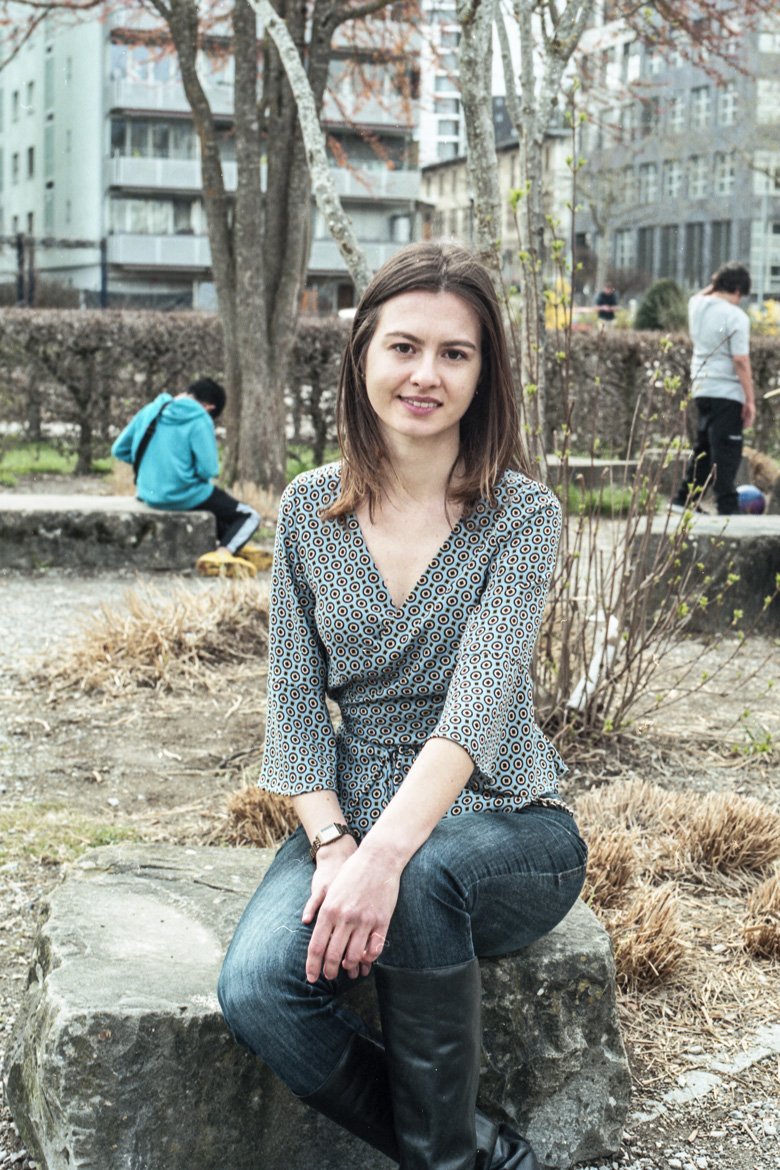
Luísa Superbia Guimarães from Brazil is investigating the working memory of children. She has learned to appreciate the quietness of Switzerland. | Photo: Mpho Mokgadi
“Here I’m recognised as a specialist who contributes to the advancement of science”
“I come from the São Paulo region of Brazil. I studied psychology and soon became interested in memory theories, especially the working memory model developed by Professor Camos at the University of Fribourg. I contacted her to do my doctorate in her laboratory, and she suggested I apply for an Excellence Scholarship, which I did, successfully. Since August 2019, I have been conducting a project on working memory in children with attention deficit disorder with or without hyperactivity (ADHD). I want to find out whether these children use the strategy called ‘attentional refreshing’, and I’ve already achieved some results.
“I had no idea what to expect in Switzerland, but I knew it was a country at the cutting edge of cognitive psychology, which attracted me. Looking back, what I like most about Switzerland is that I feel part of the university even as a PhD student. In Brazil, scientists are easily classified: they are either professors or students: there is no in-between. Here I’m recognised as a specialist who contributes to the advancement of science. I have my own office, I can give lectures, and I love it. It’s motivating and it allows me to develop lots of skills! And the supervision by Professor Camos is very stimulating. On a more personal level, I enjoy the mountains and nature. I’ve discovered many beautiful things, like hiking. And the silence, which contrasts with the constant noise of my country”.
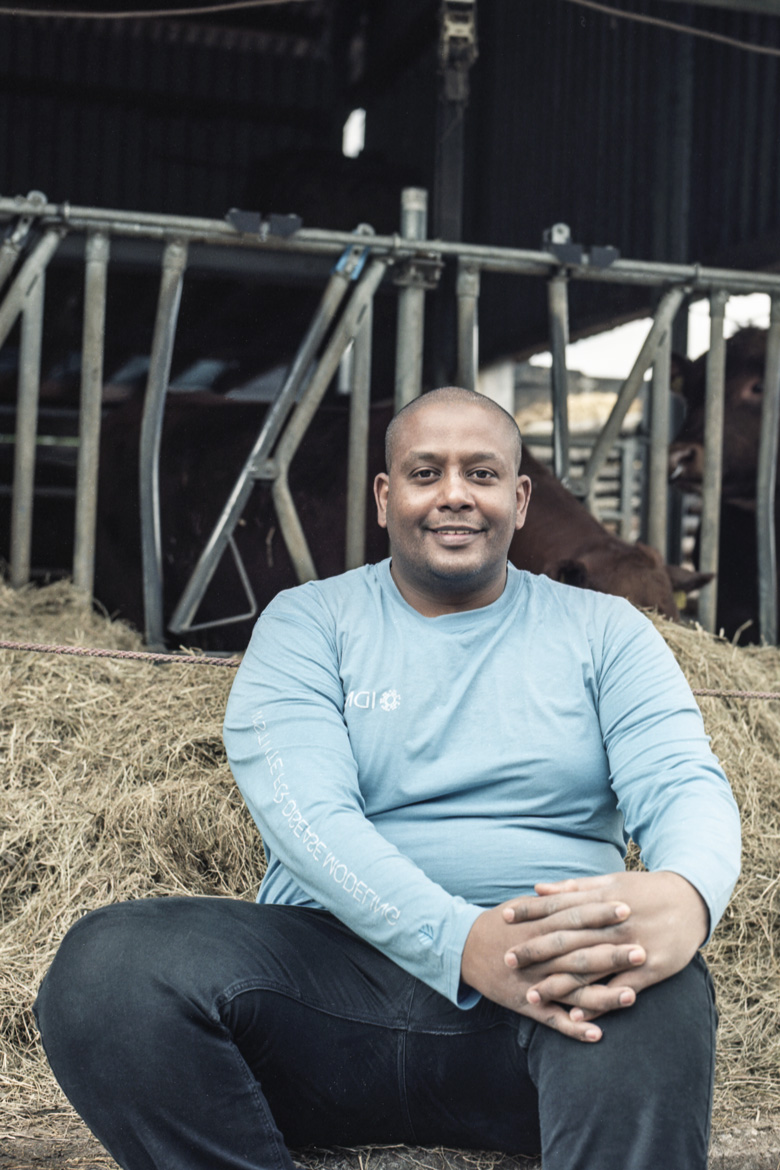
Ayman Ahmed from Sudan is characterising the virome of humans and animals. His family in Sudan associates Switzerland with sweets. | Photo: Mpho Mokgadi
“In Sudan, society has a bigger influence on individual decisions”
“The ‘One Health’ concept is a prerequisite for maintaining and promoting human and animal health. One Health means demonstrating the added value of closer cooperation between veterinary and human medicine. An early response strategy can reduce the frequency and intensity of outbreaks of emerging diseases. Covid-19 is an example of such a zoonotic viral disease. I am researching the effect of introducing and monitoring zoonotic viral diseases. We study and characterise the virome that circulates among humans, animals and vectors – in other words the whole assemblage of viruses – by collecting blood-sucking arthropods and subjecting them to molecular analysis. Unlike in my home country, here we have enough resources and high-tech facilities, and we can attend lectures and courses. I can deepen my knowledge here and gain experience in everyday research.
“In my home country, society has a bigger influence on individual decisions, whereas here individuals are more independent in their wishes and ambitions. I would like to achieve an international breakthrough with my research, for the good of humanity. That could help to make my secret dream come true – as no one from Sudan has ever been awarded a Nobel Prize. With the findings of my doctoral thesis, I could co-write books. I would then take them back to Sudan. But I also mustn’t forget chocolate for my family, friends and colleagues – as soon as I tell them about Switzerland, they think of sweets”.
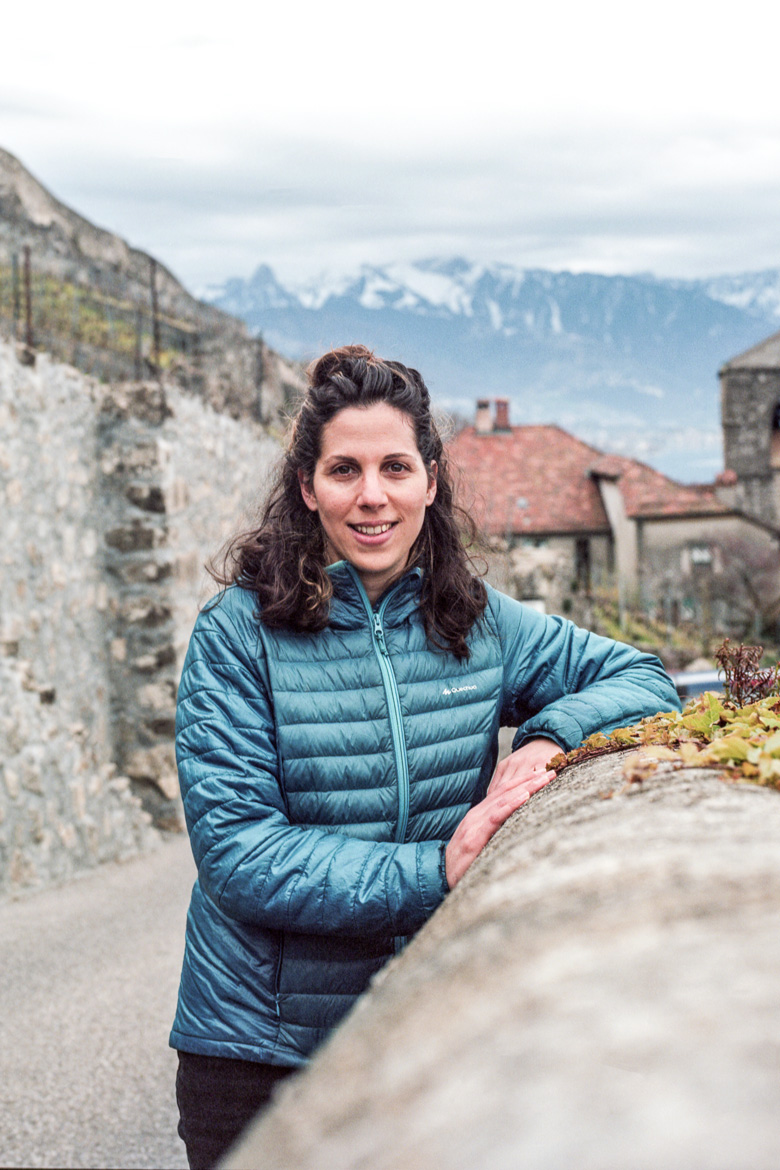
Ortal Senouf from Israel is investigating machine learning in medicine here in Switzerland. Her colleagues from Israel prefer to study in the USA. | Photo: Mpho Mokgadi
“I find that in Switzerland, the balance between professional and private life is respected”
“I’m an electrical engineering specialist, and I’m interested in machine learning and its applications in the medical field. It was thanks to the Excellence Scholarship that I was able to start my PhD at EPFL in February 2020. It allowed me to join a project for which funding would otherwise not have been secured. My work involves combining expert knowledge and machine learning to build more robust predictive models in the medical field, particularly in cardiovascular applications. What is very interesting about this project is that I can work with people from the CHUV in Lausanne. They have the data and the medical expertise, and I bring my data-science knowledge.
“I was attracted to Switzerland because it has many joint projects with European universities and institutes. It is also very international and the professors come from all over the world. For a first experience abroad, I thought it was a good choice. What also interested me was entrepreneurship. There are many opportunities to create a company starting out from academia. I also find that in Switzerland, the balance between professional and private life is respected. And for someone like me, who loves nature and hiking, Switzerland is a paradise! With my partner, who is a postdoc at EPFL, we enjoy the lake and the surroundings of Lausanne a lot. For now, I’m here until the summer. I have applied for funding to continue my PhD here. Afterwards, I could see myself joining the world of industry”.
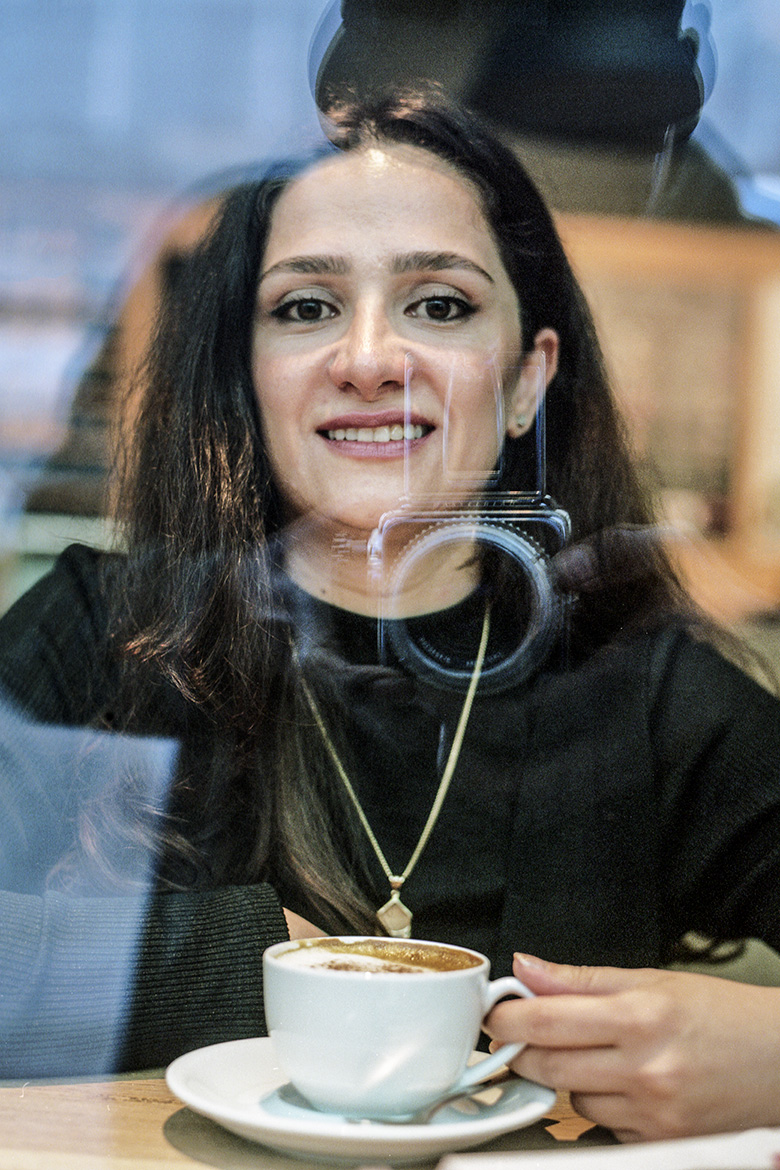
Setareh Ebrahimiabareghi from Iran is analysing Iranian ceramics in Switzerland. Back home, she usually spends her leisure time with her whole family. | Photo: Mpho Mokgadi
“Researching into the Sistan Plain also connects me to my home, the Iranian city of Bam”
“Archaeological research provides us with insights into the everyday life of people in bygone times. The invention of ceramics some 10,000 years ago was an especially important developmental step for mankind. Pottery shards can remain particularly well preserved and can help us to reach a deeper understanding of the culture, religion and economy of preliterate epochs. I am researching into Tepe Sadegh, a Bronze Age settlement in the Sistan Plain in eastern Iran. I am lucky that the finds from there include organic material suitable for radiocarbon dating. The University of Bern is a world leader in this method. It is enabling me to create both a typology of the pottery and a chronology of Tepe Sadegh.
“The Sistan Plain also connects me to my homeland. My family lives in the city of Bam. In Switzerland, people are friendly but reserved, which is why I thought that they were somewhat cold at first. Iranians are open, warm-hearted and usually spend their free time with their whole family – including all their aunts and uncles and their children. If I want to make a date with friends in Iran, I just ring them up spontaneously to see if we can meet. Here in Bern I have to plan things at least a week in advance. Since I’ve been here, I have taken many photos of the beautiful landscapes and the mountains. These photos will accompany me back to Iran. I will show them to my family and tell them about everything”.

